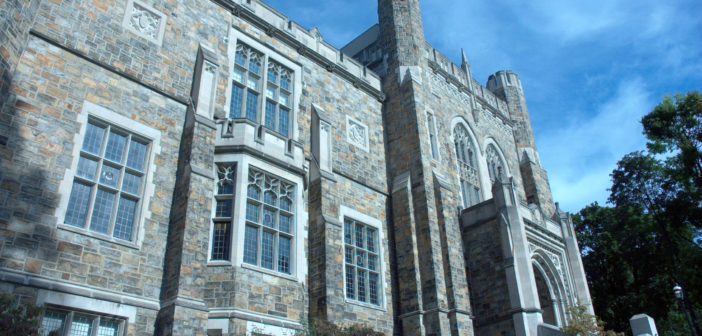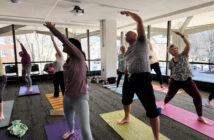Adama Dieng, the United Nations Secretary-General’s special adviser on the prevention of genocide, addressed hate crimes and how they lead to a continuous cycle of dehumanization and mistreatment of people at a conference in Linderman Library on Thursday, Oct. 3.
Dieng discussed global issues like human rights abuses, war crimes, human trafficking and genocides.
“After the second world war, the world cried, ‘never again,’ but then it happened time and time again,” Dieng said. “The most important word for these situations is prevention. If there is a crime, we can prevent it before inflicting punishment.”
Dieng said the hate crimes that are occurring globally are on the basis of ethnic, religious or racial prejudice. He stressed that the motivation for these crimes is thirst for political power or distorted views of identity empowerment, such as white supremacy.
“We need to be vigilant because people are continuing to be mistreated and discriminated on the basis of their identity,” Dieng said.
He also said one of the biggest problems humans have is they do not take accountability for their actions.
Dieng said as a global community, people must take more accountability for crimes that occur instead of blaming others. He said taking more responsibility could contribute to reducing the number of crimes that occur.
“We have to make sure to fully invest in accountability,” Dieng said. “If we want a peaceful world, we have to put humanity first and learn that living together as one is possible.”
Students at the event brought their own perspectives to the issues surrounding hate crimes.
Jorgo Tesfa, ‘21, said he was excited to come to the event to hear Dieng speak and learn more about hate crimes, specifically, the Rwandan genocide.
“Hearing the perspective of Adama Dieng was such a unique perspective, because it’s not something that you normally see or hear about,” Tesfa said. “Talking about what is happening around the world and hearing the perspective of the UN is not common because the negative news that is published tends to drown the good effort of the people trying to solve these problems.”
Dieng said there is minimal action being taken to address hate crimes because politicians and people of authority are scared they will lose supporters if they get too involved in the controversies related to these crimes.
Steven Escobar-Mendez, ‘22, said he came to the event because he believes that genocide is something that no one likes talking about, but it has to be talked about because of the influence it has on the future.
“People will always point fingers if they don’t want to be blamed, but there needs to be more people who stand up for what they know is right,” Mendez said. “It is not a clash on culture, but a clash on ignorance.”






Comment policy
Comments posted to The Brown and White website are reviewed by a moderator before being approved. Incendiary speech or harassing language, including comments targeted at individuals, may be deemed unacceptable and not published. Spam and other soliciting will also be declined.
The Brown and White also reserves the right to not publish entirely anonymous comments.
1 Comment
I don’t like the term “hate crimes”. The term has no negative reaction from the accused. I like “crimes for the mentally weak”. You can be appropriately be proud of hate if you “hate evil” or if you think those you hate are deserving of it. I don’t see anyone being proud of being a “mentally 97 pound weakling”. Hate is a mental problem.